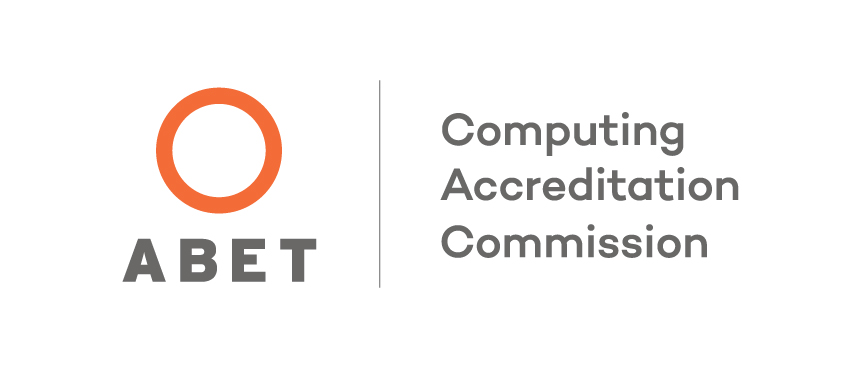Support Page Content
Accreditation & Assessment
The mission of the Computer Science Department is to:
- Be a department of choice for high-quality and innovative undergraduate and graduate degree programs in computer science, software engineering, and computer engineering.
- Educate a diverse student population.
- Foster research and professional development activities that enable faculty to maintain currency in their fields, and engage students in research.
- Provide technological leadership to the University community and the Sacramento region.
- Provide experiences that reflect state-of-the-art/state-of-the-practice by incorporating new areas and technologies into its academic programs.
- Strive to serve regional educational needs for professional development and interdisciplinary programs.
- Participate in the development of new technologies that drive local, regional, and national economies through interaction with industry.
 The Bachelor of Science degree in Computer Science is accredited by the Computing Accreditation Commission (CAC) of ABET
The Bachelor of Science degree in Computer Science is accredited by the Computing Accreditation Commission (CAC) of ABET
Undergraduate Program Educational Objectives
Program educational objectives are broad statements that describe what graduates are expected to attain within a few years of graduation.
Program educational objectives are based on the needs of the program’s constituencies. Three to five years after graduation, a graduate of the B.S. in computer science should have:
- Made contributions to the development, maintenance, and support of real world computing systems.
- Taken initiative and assumed responsibilities as an effective member of project teams.
- Worked independently and functioned effectively in an environment with incomplete information.
- Progressed in the computing field, engaged in professional development, and/or pursued an advanced degree.
- Produced quality technical and non-technical documents and presentations for a variety of audiences.
- Adhered to the ethical standards of the profession and understood the implications of his/her professional activities.
Undergraduate Student Outcomes
Student outcomes describe what students are expected to know and be able to do at the time of graduation. These relate to the knowledge, skills, and behaviors that students acquire as they progress through the program.
At graduation, a B.S. in computer science graduate should be able to:
- Analyze a complex computing problem and apply principles of computing and other relevant disciplines to identify solutions.
- Design, implement, and evaluate a computing-based solution to meet a given set of computing requirements in the context of the program’s discipline.
- a. Communicate effectively in speech in a variety of professional contexts.
b. Communicate effectively in writing in a variety of professional contexts. - Recognize professional responsibilities and make informed judgments in computing practice based on legal and ethical principles.
- Function effectively as a member or leader of a team engaged in activities appropriate to the program’s discipline.
- Apply computer science theory and software development fundamentals to produce computing-based solutions.
Graduate Learning Objectives & Outcomes
Objectives
Master, integrate, and apply advanced knowledge and skills to solve complex computer science problems.
Outcomes- Apply advanced knowledge of mathematics, algorithmic principles, computing theory, and principles of computing systems in the modeling and design of computer-based systems
- Apply hardware design or software development process that includes requirements, design, development, verification and validation.
- Apply current technology and best practices in the development of computer-based systems of varying complexity.
Objectives
Produce quality technical and non- technical documents and presentations for a variety of audiences.
Outcomes- Use proper structure, syntax, and organization.
- Communicate effectively technical content.
- Deliver oral presentations effectively.
Objectives
Demonstrate the ability to be creative and analytical, and to contribute to the discipline.
Outcomes- Create novel ideas, algorithms, and/or theoretical solutions; or develop new techniques and/or innovative implementations for a new or existing problem.
Objectives
Demonstrate the ability to obtain, assess, and analyze developments and advancements in computer science.
Outcomes- Perform a thorough study and evaluation of related work.
- Evaluate the current methodologies and state of the art technologies.
Objectives
Adhere to ethical standards of the profession.
Outcomes- Understand, and abide by, ethical standards.
Objectives
Understand the social and global implications of his/her professional activities.
Outcomes- Understand the implication of his/her professional activities.
Enrollment & Graduation Data
The tables below show enrollment and graduation data from the Office of Institutional Research.
Enrollment
| Enrollment Fall Semester | 2015 | 2016 | 2017 | 2018 | 2019 | 2020 |
|---|---|---|---|---|---|---|
| Undergraduate Students | 943 | 1052 | 1176 | 1304 | 1390 | 1515 |
| Graduate Students | 112 | 109 | 129 | 166 | 179 | 137 |
| Department Total | 1055 | 1161 | 1305 | 1470 | 1569 | 1652 |
Degrees Conferred
| Graduation Year | ’15-16 | ’16-17 | ’17-18 | ’18-19 | ’19-20 | ’20-21 |
|---|---|---|---|---|---|---|
| Bachelor’s | 90 | 140 | 156 | 243 | 238 | 247 |
| Master’s | 22 | 45 | 35 | 39 | 51 | 47 |
| Department Total | 112 | 185 | 191 | 282 | 289 | 294 |